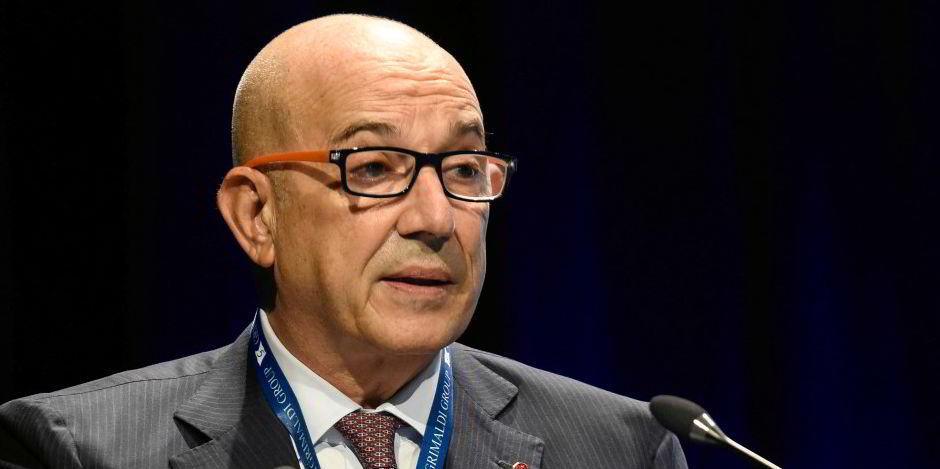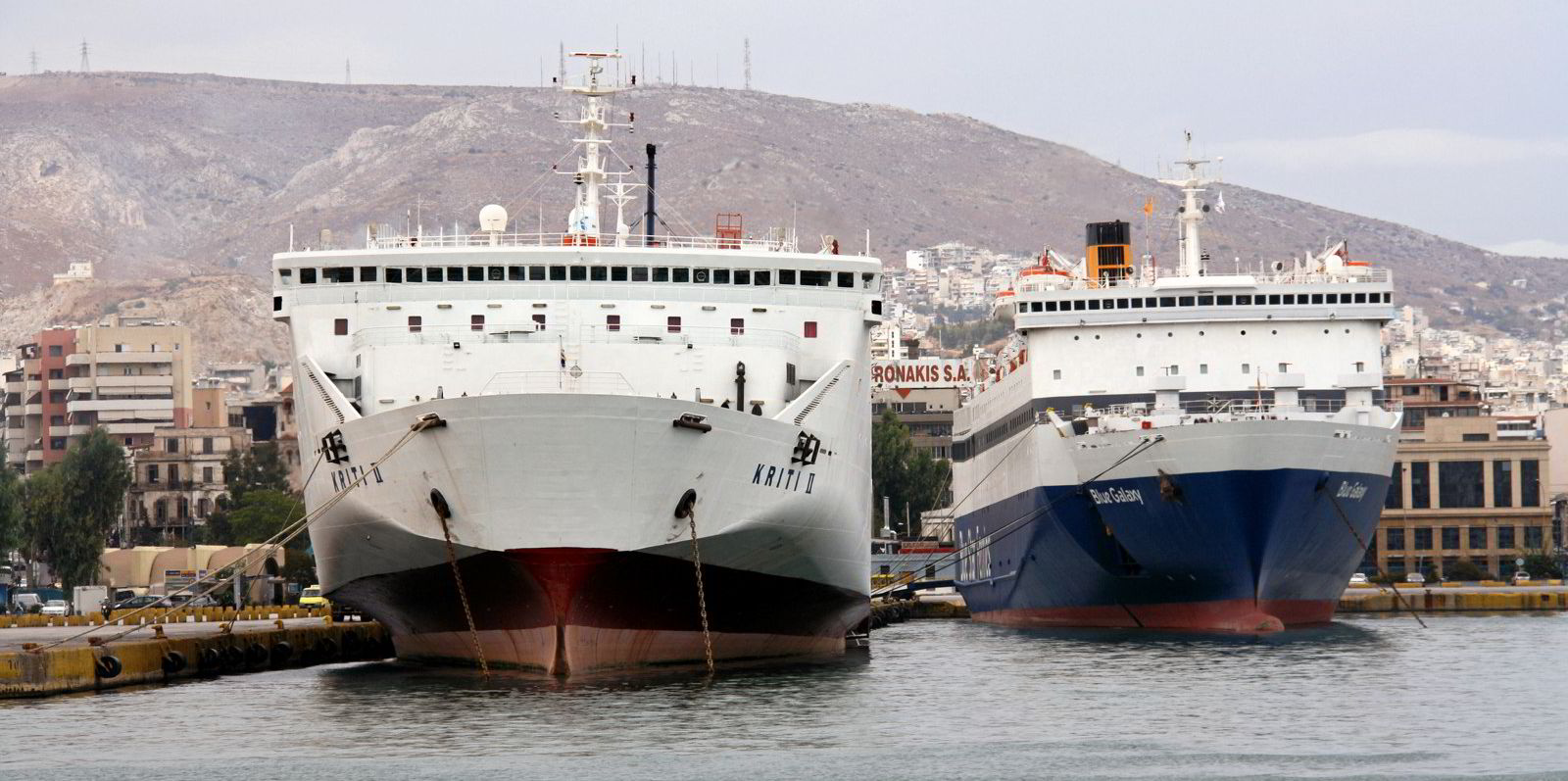Grimaldi Group's decarbonisation effort is benefitting from a "relentless" newbuilding programme, managing director Emanuele Grimaldi said.
The Naples-based company is taking delivery of 32 ropax, conro and pure car and truck carriers (PCTC) ordered at a total cost of €2bn ($2.32bn).
Grimaldi said the technological impact of the newbuildings, which will continue to be delivered until the end of 2025, is proving to be massive.
That has been a factor in the decision of the company to accelerate the depreciation time of the fleet of around 130 vessels by five years.
Some observers suggest that could reflect technological changes that might leave some shipowners with so-called "stranded assets".
But Grimaldi's explanation for accelerating depreciation is merely a way for his company to make money with a younger fleet.
More than 130 operated vessels, of which around 80% are deepsea and the remainder are ropax vessels.
Seven GG5G-class (Grimaldi Green 5th Generation) hybrid ro-ro units, two Superstar-class ro-pax vessels and six G5-class ro-ro multipurpose units ordered, to be delivered by 2024.
More than 140 ports called in about 50 countries around the world.
A total of 25 owned/managed terminals worldwide.
Some 15,000 employees onboard and ashore, of which more than 500 are employed in the headquarters in Naples.
Seven shipping companies make up the Grimaldi Group. Three of them — Grimaldi Deep Sea, Atlantic Container Line (ACL) and Malta Motorways of the Sea — are involved in freight transport. Four others — Grimaldi Euromed, Finnlines, Minoan Lines and Transmed GLE — are ropax services.
"In the last couple of years we took delivery of 12 ships, but in the next four years we will receive another 20," he said. "In the last 10 years, our fleet grew around 35%.
"But we still have an orderbook of 15% to phase in, for a cumulative €2bn expense for the Grimaldi Group."
He said that expansion has only been possible thanks to "economic resilience".
"The Covid crisis hit hard many of our cargo niches and passenger volumes during 2020 and 2021," he said.
"But the company survived without closing any service and without laying off any employees."
A good year
He said the Covid-19 pandemic hit the company, with last year's turnover falling by around $500m.
But this was compensated by a reduction in costs, thanks to lower oil prices and a halt in staff overtime work and business trips.
Profitability in 2020 was close to 2019 levels, and Ebitda was only 0.8% down on the previous year.
"We were satisfied with the economic and financial result of the last year," Grimaldi said.
"Now that the worst of the Covid crisis seems to be over, we can expect that 2021 will be a good year."
Grimaldi singled out the special role of its conro division, Atlantic Container Lines (ACL).
"ACL in particular, playing more in the container sector, will be the star of the year," he said.
Grimaldi said the company has continued a policy of reinvesting its earnings in energy-efficient, low-emission vessels.
The company has used part of that to contribute to research-and-development projects, including pilot projects on hydro and electrical engines, as well as patenting a system for cleaning up the seas from micro-plastics through scrubbers.
"Green R&D means nothing to the planet until you invest for applying it," Grimaldi said. "That's why we massively ordered retrofits to existing ships."
The company has racked up retrofit expenses of €600m.
"Half was spent in mounting exhaust gas cleaning systems," Grimaldi said.
The other half was equally divided between "jumboising", propeller improvements, ballast water treatment and other environmental upgrade systems.
More cargo for fewer emissions
The introduction of newbuildings on some routes will lower the average age of the fleet and reduce tonne/km emissions by 50% against their immediate predecessors.
He used the example of the four eco-ro-ro vessels introduced onto the Livorno-Savona-Barcelona-Valencia line.
The 7,800-lane-metre Eco Valencia (built 2020), Eco Savona, Eco Barcelona and Eco Livorno (built 2021) are part of a series of 12 ro-ro vessels in the Grimaldi Green 5th Generation (GG5G) ordered at Jinling Shipyard in Nanjing, China.
Grimaldi said these four ships will do the job of six older vessels in the service they replace and will carry 25% more cargo emitting 24% less CO2.
Grimaldi added that the same design improvements have been made on the $500m order in February in South Korea’s Hyundai Mipo Dockyard (HMD) for six ro-ro/multipurpose (MPP) vessels.
The 45,684-dwt ships are expected to be delivered from early 2023 to the end of 2024 and are also based on improved designs.
"I don't order if I don't see a very big improvement, particularly on emissions," Grimaldi said.
"Consumption and emission are the same thing: if you emit less, you consume less. So there is an enormous saving as well."
Stronger economic position has enabled Grimaldi to grow organically. In July, it formed Trasmed GLE from the acquisition of Spanish ferry company Trasmediterranea and its five ropax ships from Spain's Navieras Armas.
Grimaldi said continued growth will lead to a new era where corporate ethics are important.
"Most probably we are entering a new league of large-sized companies, and the bigger you are, the more responsible you have to be," he said.







